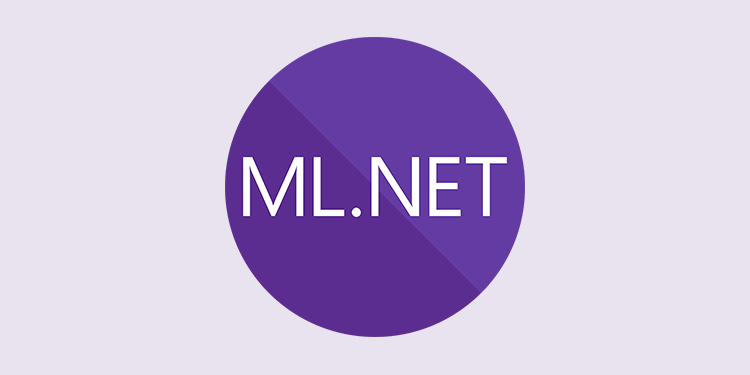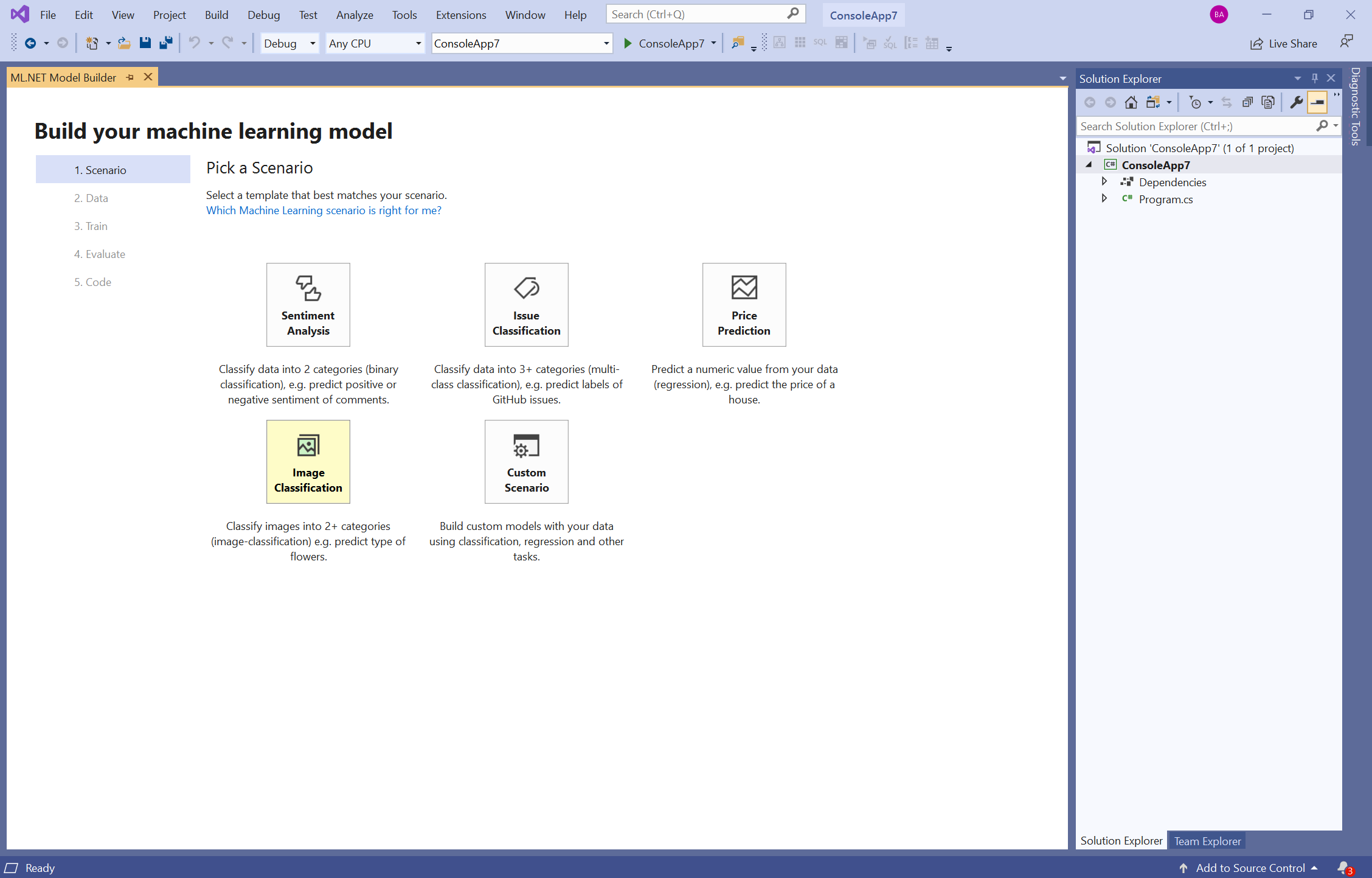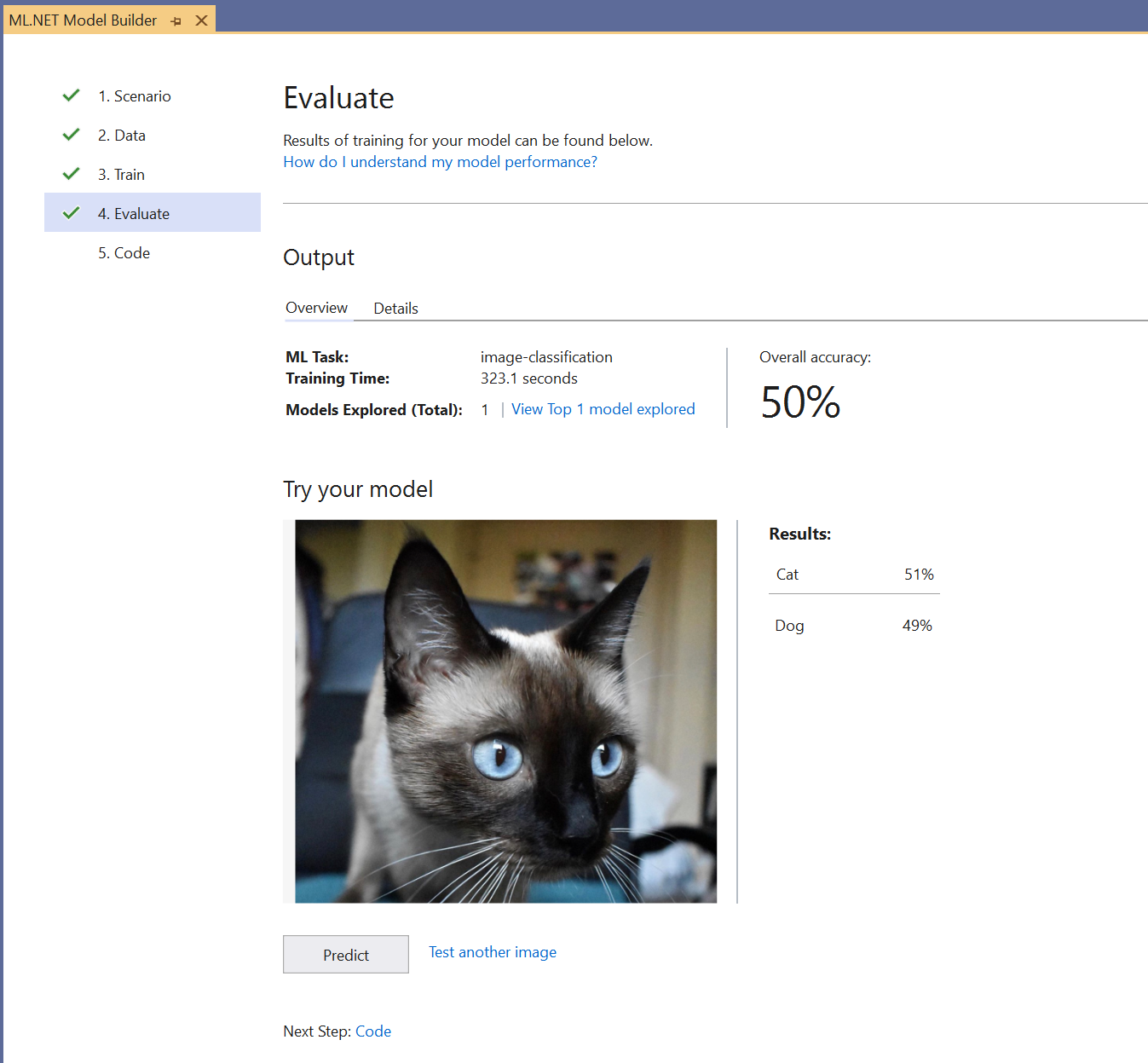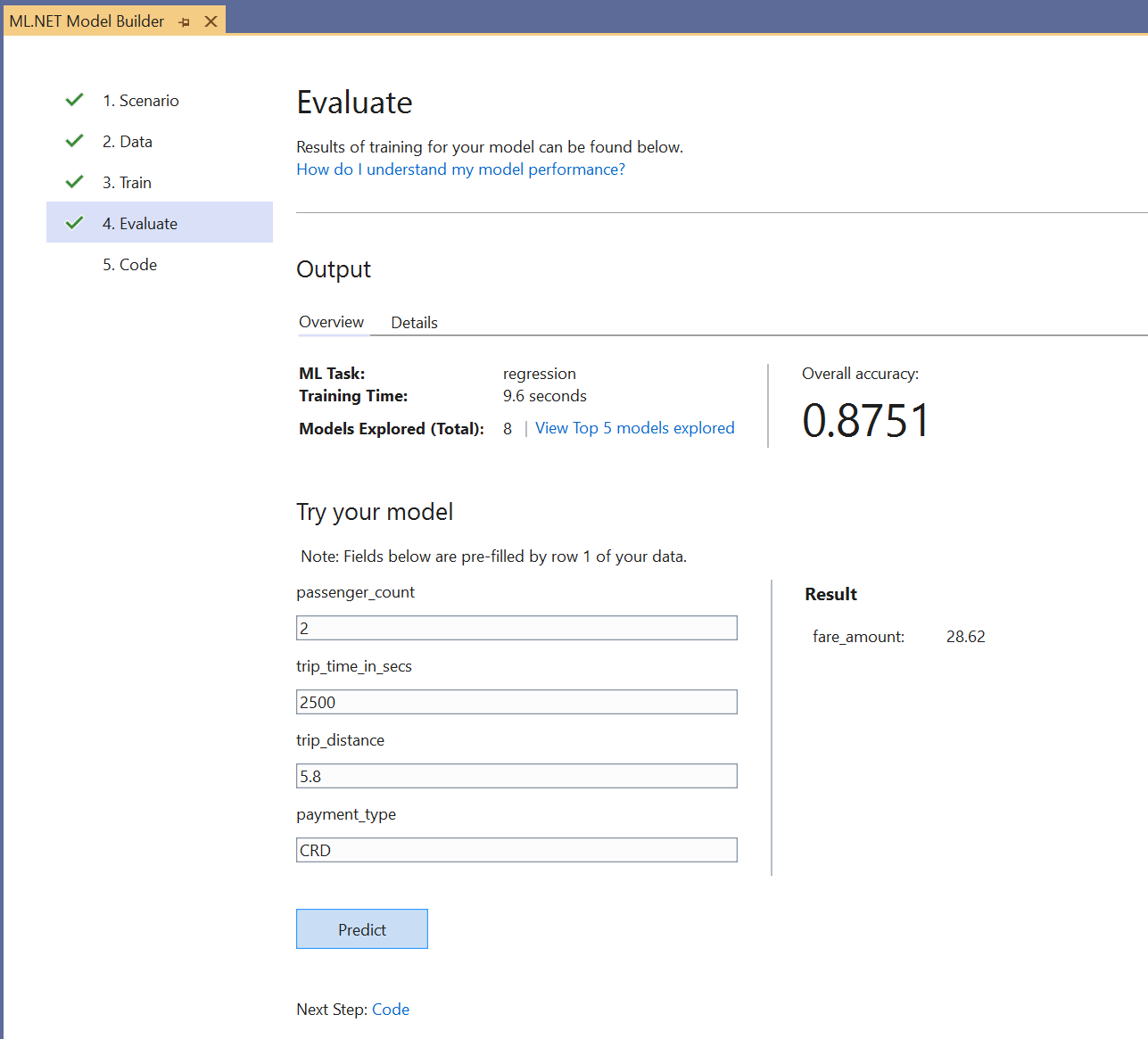ML.NET Model Builder
This Model Builder release contains bug fixes and two new cool features:
- Image Classification Scenario - Locally train image classification models with your images
- Try your model - make predictions on a sample of input data directly in the UI

Image Classification Scenario
We demonstrated this feature on .NET Conf. Using it, you can determine the weather on images as sunny, cloudy or rainy, and now you can locally train image classification models in Model Builder using your own images.

For example, let's say you have a dataset of images of dogs and cats, and you want to use these images to train the ML.NET model, which classifies the new images as “dog” or “cat”.
Your data set should contain a parent folder with marked subfolders for each category (for example, a folder named Animals, which contains two subfolders: one named Dog, which contains images of dogs, and one named Cat, which contains images of cats):

You can use Next Steps and the projects generated by Model Builder to easily apply the trained image classification model in your application to the end user, as well as in text scripts.
Try your model
After training the model in Model Builder, you can use the model for forecasting directly in the user interface for both text and picture scenarios.
For example, for an example of dog-cat image classification, you can add an image and view the results in the “Assessment” step in Model Builder:

If you have a text scenario, such as forecasting a taxi price, you can also add sample data in the “Try your model” section:

Waiting for your feedback
If you encounter any problems or feel that something is missing in the ML.NET Model Builder, let us know by creating a request in our repository on GitHub .
Get started with Model Builder
You can download ML.NET Model Builder in the VS Marketplace (or in the Extensions menu in Visual Studio).
Learn more in the ML.NET documentation or study the tutorial .
Not using Visual Studio yet? Try the ML.NET CLI .